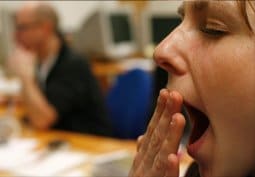By: Hilda Scott
According to scientists, sleep deprivation can slow down your metabolism and cause weight gain. A lower metabolism means that the body burns fewer calories.
Proper sleep habits may be a way to combat obesity according to a study performed in conjunction with Colorado University’s Anschutz Medical Campus. Staying awake for longer periods of time requires more energy and that causes a person to eat more. This was cited as an additional factor that contributed to the extra pounds.
The results of the study were published in the Proceedings of the National Academy of Sciences on March 11. “I don’t think extra sleep by itself is going to lead to weight loss. Problems with weight gain and obesity are much more complex than that. But I think it could help. If we can incorporate healthy sleep into weight-loss and weight-maintenance programs, our findings suggest that it may assist people to obtain a healthier weight’, said Kenneth Wright, director of Colorado University Boulder’s Sleep and Chronobiology Laboratory.
Participants of the study lived at the University of Colorado’s “sleep suite” where sleep habits were controlled and monitored. Researchers examined the sleep patterns of sixteen young, lean and healthy adults and measured energy used by the participants. The group was allowed to sleep for nine hours each night during the first three days. The groups were then split into two groups with different sleep allowances. One group spent five days with five hours of sleep per night and the other group spent five days with nine hours of sleep per night. Both groups were offered large meals and a variety of snack options including fruit, yogurt, ice cream and potato chips. When the five days were complete, the groups traded places.
Results of the study showed that five percent more energy was burned per night among the participants who slept for five hours compared to the group that slept nine hours. It was found that they consumed six percent more calories and ate smaller breakfast but would binge on snacks after dinner.
“When people are sleep-restricted, our findings show they eat during their biological nighttime when internal physiology is not designed to be taking in food,” said Wright.
The total caloric count of snacks totaled more than an individual meal. Findings from the study are additional proof of how weight gain is a result overeating during the evening.



